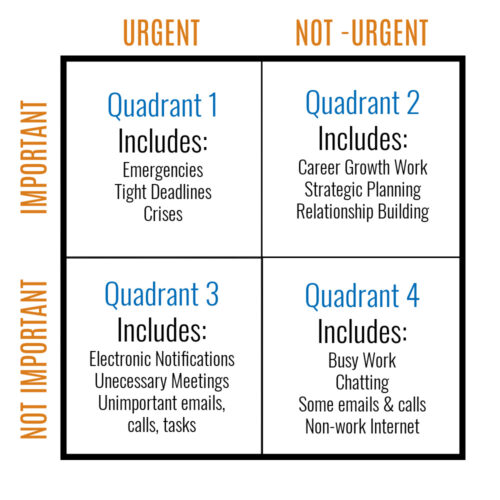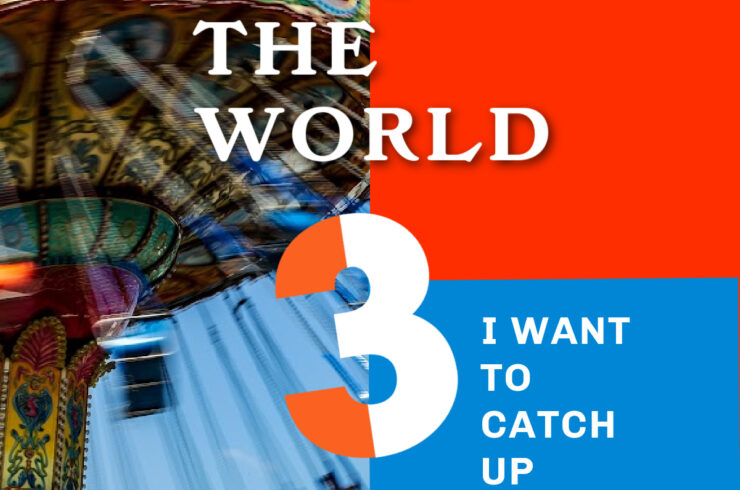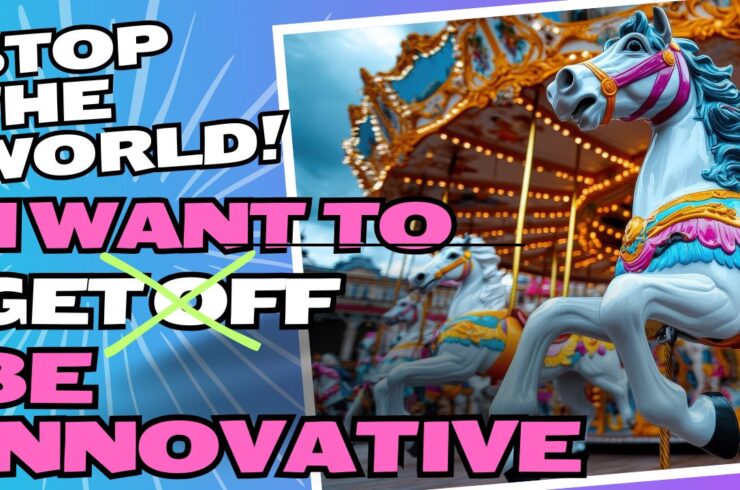Stop the World; I Want to Get Off Accomplish Something Important
Beth Schaefer IPD Director

Explaining Stop the World Logic
I had a conversation with a colleague last week who was lamenting the lack of time to complete all their work. This led me to think about time management and a phrase I often use in both my work and personal life, Stop the world; I want to catch up. I need everyone else to freeze in time so that I have a few days to keep working and get caught up.
And, as often happens, real life generates an article idea. In this case: time management. Yes, this is an old topic, but a perennial favorite because so many of us still feel the time crunch. Add it to the list of other topics we can never seem to get consistently right: change management, process improvement, onboarding, (add your own topic here). These are topics that we are constantly revisiting and learning more about because the gap between doing it, and doing it well, is so large.
Researching innovative time management ideas turned this one article into the Stop the World collection of articles. Because, as research tells me, time management is about more than just catching up.
What Am I Doing All Day?
Thinking about time management reminded me of Covey’s 7 Habits for Highly Effective People. I most recently used Covey in teaching a college course on effective supervision. Covey divides your time into four quadrants based on importance and urgency.
- Necessity: Important and Urgent
- Effectiveness: Important and Not Urgent
- Distraction: Not Important and Urgent
- Waste: Not Important and Not Urgent

The Stop the World collection will focus on reducing Distraction and Waste so that you have more time for the Necessary and Effective. This may seem an obvious solution; however, the latest workplace trend is “Present-ness.”
Looking Busy
While “being present” is a good thing; present-ness is about appearing busy. Present-ness is the response to the return-to-office movement. Recent research has shown that people sitting at their desks in their offices are more likely to be seen as a quality worker, a dedicated worker, an engaged worker and are, therefore, more likely to receive promotions. However, that same research reveals that the traditional thinking of “desk = productivity” is not accurate.
Sitting at a desk in the office does not mean those workers are more productive. When it comes to perception vs. reality, perception is 9/10th of the law, so workers are willing to sacrifice productivity in favor of appearing busy. What are those “busy” people actually doing?
- Answering emails (average of 9 hours a week)
- Sitting in meetings (average of 7.5 hours a week)
- Gossiping (average of 2-12 hours a week depending on your source)
- Texting friends and family (average of 5 hours per week)
- Surfing the internet/social media (average of 5 hours per week)
“Busy” is, not necessarily, productive. “Busy” can happen at the office (gossiping even more so) just as easily as at home.
Accomplishing Something Important
With that new trend in mind, let’s take a look at the Effectiveness Quadrant. The Effectiveness Quadrant (Important, Not Urgent) includes proactive activities that can be done in an office located at work or at home:
- Setting important goals
- Planning
- Relationship Building
- Learning
- Thinking Creatively
Just thinking about doing these things at work makes me feel guilty because I am not crossing tasks off my to-do list; however, what strikes me about this list is that it correlates quite strongly to items leaders should do to promote employee engagement. (See our Employee Engagement series.) I firmly believe in cultivating intentional employee engagement. Maybe that will help me make time for important, not urgent items.
I also read this list and find that these items could fuel my own work engagement. I can proactively incorporate important, not urgent items into my own schedule to keep myself invested and model the importance of that quadrant to my team. You can too. What parts of your job do you love but do not take time to do because it feels like a guilty pleasure? Do them. If you do not have anything you like about your job, consider referencing the articles on The Great Resignation to find a new job.
For me, I love writing curriculum. It is no longer the main part of my role, but finding pockets of projects that allow me to write curriculum sparks creativity, keeps me engaged in my work, and gives me joy. For you, these activities could be taking some training, having a conversation with a mentor, or researching a topic you are passionate about. Clearly finding joy in your work can only be a good thing for both you and your employer.
Hopefully, the Stop the World collection of articles will help you to step off the busy-ness and step into what is important.
Next article in the collection coming next month: Stop the World; I Want to Get Off Be Innovative.
Stop the World Series Resource List
The 7 Habits
Encouraging Creative Thinking in the Workplace
Falling Behind on Work? Take These Steps to Get Back on Track
Finding Your Innovation Sweet Spot
The Hidden Tactic Overloaded Workers Are Using to Catch Up
How CEO’s Make Time to Create That Unexpected Lead Forward
How to Catch up on Work When You’ve Fallen Behind
How to Give Busy People the Time to Innovate
How to Gossip Strategically to Get Ahead at Work
Systematic Innovative Thinking
Top 10 Productivity Killers in the Workplace




